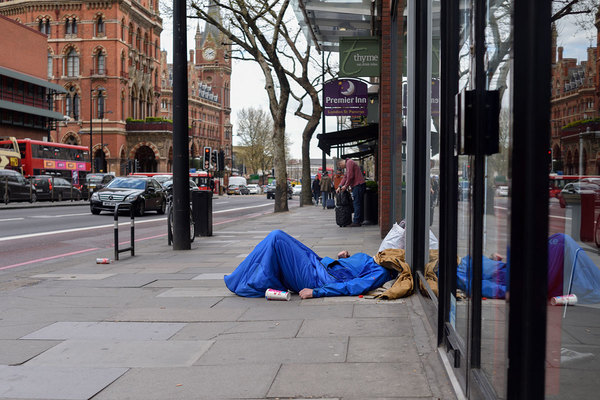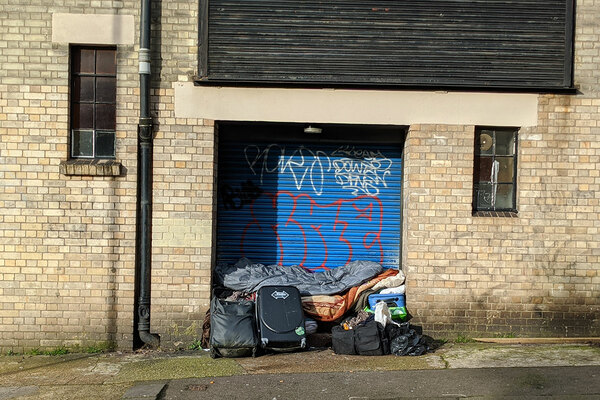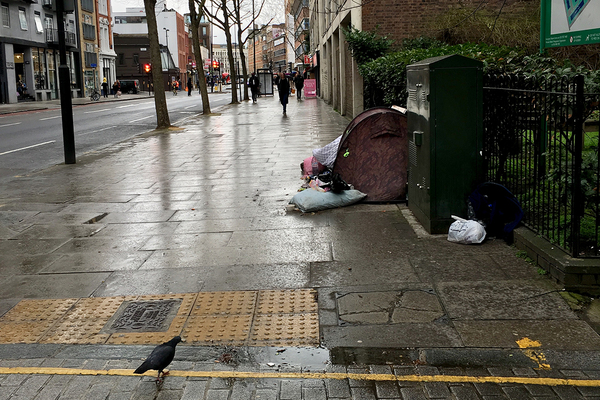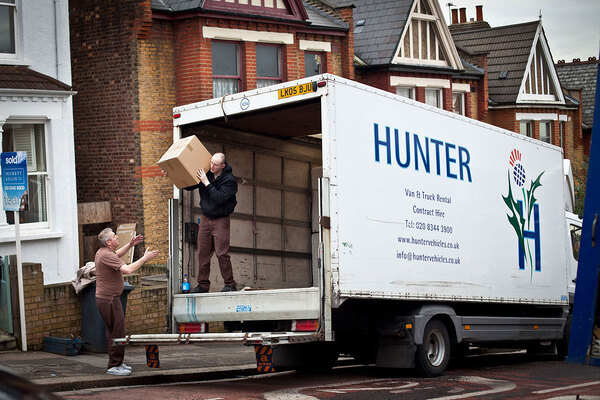You are viewing 1 of your 1 free articles
Homelessness charities warn of upcoming ‘humanitarian disaster’ if replacements for shelters are not found
More than 60 frontline charities and community groups have warned the government that the country could be facing a “humanitarian disaster” this winter if more funding is not provided to organisations supporting rough sleepers.
In a joint letter sent to housing secretary Robert Jenrick, the organisations urged the government fund the sector now to solve potential problems with winter provision later this year.
The letter said: “Pre-pandemic, the vast majority of people sleeping rough have been accommodated through the winter shelter network from November to March each year.
“We are now facing the risk of a humanitarian disaster as the shared winter shelter spaces commonly used will not meet public health requirements.”
Last week the government pledged to deliver 6,000 new long-term homes for rough sleepers who have been housed in hotels during the pandemic – 3,300 of these homes are to be made available in the next year.
The money to fund this scheme will be accelerated from the £381m rough sleepers fund announced in March’s Budget, which was originally set to fund accommodation over a four-year period.
In their letter the frontline organisations asked the government to clarify whether individuals who were unable to access the emergency hotel accommodation will be able to access this long-term provision.
The letter also asked the government to clarify whether it will be providing support to migrants with no recourse to public funds, roughly 1,000 of whom have been placed in emergency accommodation in London alone.
It said the £3.2bn in unringfenced funding that has currently been allocated to councils during the coronavirus crisis is not “sufficient for municipal governments to do the urgent work of protecting residents from the ongoing crisis at hand”.
Signatories of the letter include: The Big Issue Foundation, Museum of Homelessness, Haringey Migrant Support Centre, and the Public Interest Law Centre.
A Ministry of Housing, Communities and Local Government spokesperson said: “Any suggestion we are rowing back on our commitment to support rough sleepers is untrue.
“We’ve been clear councils must continue to provide safe accommodation – backed by an unprecedented £3.2bn package of government support – and thank councils, charities and other partners for working with us throughout this pandemic as we protect some of the most vulnerable people in our society.
“Our new rough sleeping taskforce – spearheaded by Dame Louise Casey – has one overriding objective: to ensure as many people as possible who have been brought in off the streets in this pandemic do not return and will continue to work closely with councils and charities to provide the long-term support needed.”













